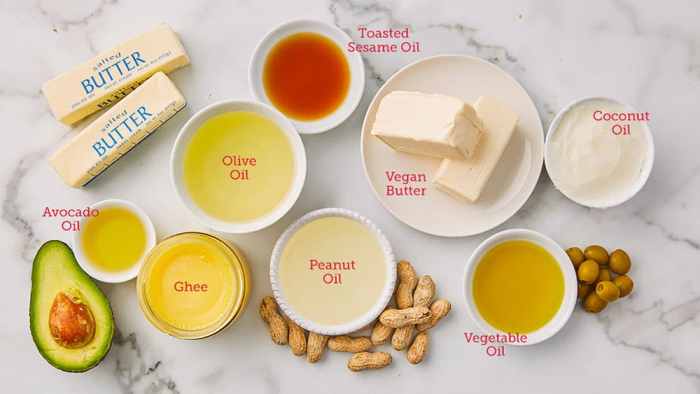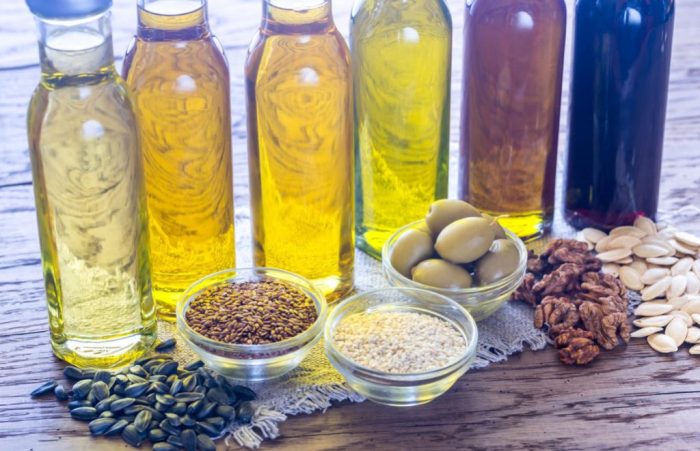Palm coconut oils are more like animal fats – As palm coconut oils take center stage, the revelation that they share striking similarities with animal fats has sparked intrigue. This article delves into the nutritional composition, health implications, applications, sustainability, and future trends of these enigmatic fats, providing a comprehensive understanding of their multifaceted nature.
Delving into their molecular makeup, we uncover remarkable parallels in their fatty acid profiles, revealing a composition more akin to animal fats than their vegetable counterparts. This discovery has significant implications for both culinary practices and health considerations.
Palm Coconut Oils Are More Like Animal Fats

Palm coconut oils and animal fats are two types of fats that are commonly used in food, cosmetics, and other industries. They share some similarities in their nutritional composition, but there are also some important differences. This article will provide a detailed comparison of the nutritional composition, health implications, applications and uses, sustainability and environmental impact, and future trends and innovations of palm coconut oils and animal fats.
Nutritional Composition
Palm coconut oils and animal fats are both high in saturated fats. Saturated fats are the type of fat that is most commonly associated with heart disease. However, palm coconut oils also contain some monounsaturated and polyunsaturated fats, which are healthier types of fat.
Animal fats, on the other hand, are typically higher in saturated fats and lower in monounsaturated and polyunsaturated fats.
| Fat Type | Palm Coconut Oil | Animal Fat |
|---|---|---|
| Saturated Fat | 86% | 90% |
| Monounsaturated Fat | 10% | 5% |
| Polyunsaturated Fat | 4% | 2% |
Health Implications
The high saturated fat content of palm coconut oils and animal fats has been linked to an increased risk of heart disease. Saturated fats can raise LDL cholesterol levels, which is the type of cholesterol that is associated with plaque buildup in the arteries.
Plaque buildup can narrow the arteries and restrict blood flow to the heart, which can lead to heart disease.
However, some studies have shown that palm coconut oil may not be as harmful to heart health as other types of saturated fat. This is because palm coconut oil contains lauric acid, which is a type of saturated fat that has been shown to have some beneficial effects on heart health.
Applications and Uses, Palm coconut oils are more like animal fats
Palm coconut oils and animal fats are used in a variety of food, cosmetic, and industrial applications. Palm coconut oil is commonly used in cooking, baking, and frying. It is also used in the production of margarine, shortening, and other food products.
Animal fats are used in the production of meat products, dairy products, and other food products. They are also used in the production of cosmetics, soaps, and other personal care products.
Sustainability and Environmental Impact
The production of palm coconut oil and animal fats has a significant environmental impact. The cultivation of palm trees for palm coconut oil production has been linked to deforestation, biodiversity loss, and greenhouse gas emissions. The production of animal fats also has a significant environmental impact, as it requires large amounts of land, water, and feed.
Future Trends and Innovations
There is a growing demand for sustainable and healthy alternatives to palm coconut oils and animal fats. This has led to the development of new technologies for the production of plant-based oils and fats. These plant-based oils and fats are typically lower in saturated fat and higher in monounsaturated and polyunsaturated fats, which makes them healthier than palm coconut oils and animal fats.
Top FAQs
Are palm coconut oils as unhealthy as animal fats?
While both palm coconut oils and animal fats contain high levels of saturated fatty acids, palm coconut oils also contain beneficial monounsaturated and polyunsaturated fatty acids. However, excessive consumption of either fat can increase the risk of heart disease and other health conditions.
What are the advantages of using palm coconut oils over animal fats?
Palm coconut oils have a longer shelf life and higher smoke point than animal fats, making them more suitable for high-heat cooking. They also contain antioxidants and antimicrobial properties.
What are the sustainability concerns associated with palm coconut oil production?
Palm oil production has been linked to deforestation, biodiversity loss, and greenhouse gas emissions. Sustainable practices are crucial to mitigate these environmental impacts.


